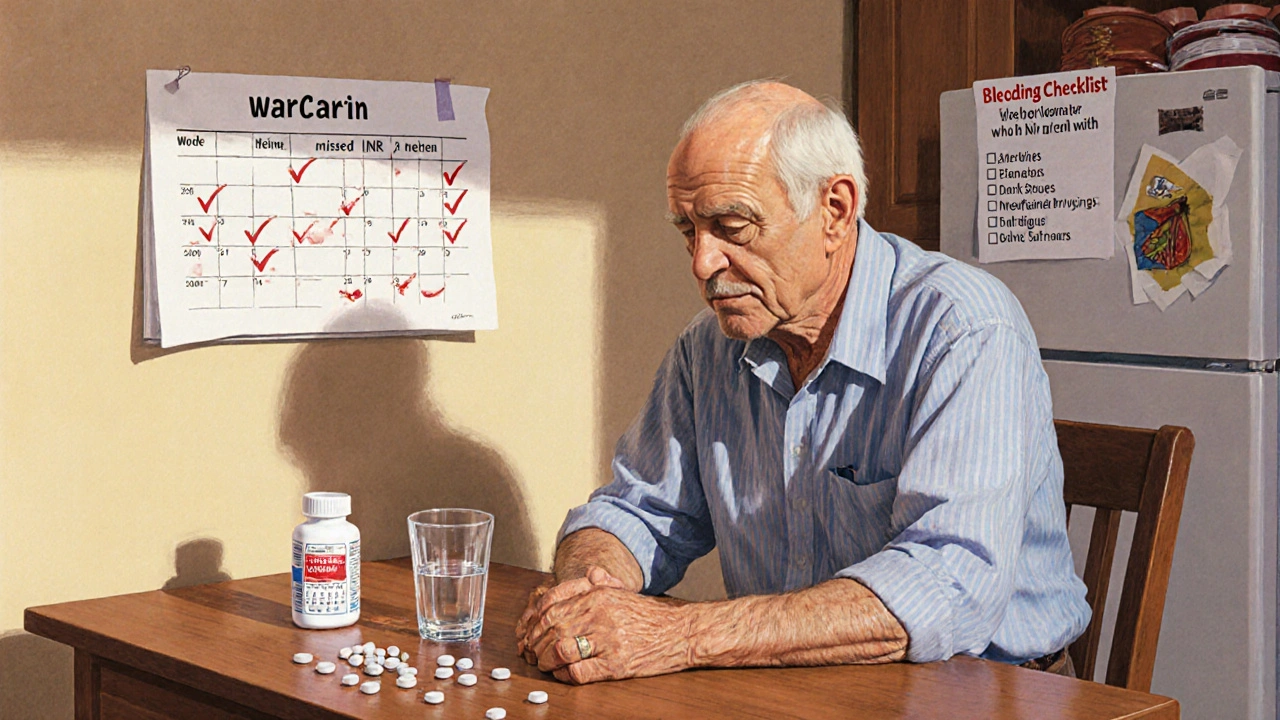Blood Thinner Overdose: Signs, Risks, and What to Do
When you take a blood thinner, a medication that prevents dangerous blood clots by slowing down the clotting process. Also known as anticoagulant, it’s prescribed for conditions like atrial fibrillation, deep vein thrombosis, or after a heart valve replacement. But if the dose is too high, or if it interacts with other drugs or foods, it can lead to a blood thinner overdose, a medical emergency where the blood loses its ability to clot properly.
Common blood thinners, include warfarin, rivaroxaban, apixaban, heparin, and dabigatran. Each works differently, but all carry the same risk: too much means internal bleeding. You might not notice it at first. A bruise that won’t fade, nosebleeds that won’t stop, or pink urine could be early signs. More serious symptoms include vomiting blood, severe headaches, dizziness, or sudden weakness on one side of the body. These aren’t normal side effects—they’re red flags. Many people don’t realize their medication dose needs adjusting until something goes wrong. That’s why regular blood tests, especially with warfarin, matter. The INR test measures how long your blood takes to clot. If it’s too high, you’re at risk. Other factors like alcohol, certain antibiotics, or even large amounts of vitamin K can throw off your balance. And if you’re taking multiple meds, like antibiotics or NSAIDs, you could accidentally create a dangerous interaction.
It’s not just about pills. Some people don’t realize that herbal supplements like ginkgo, garlic, or ginger can thin the blood too. Even over-the-counter pain relievers like ibuprofen can increase bleeding risk when mixed with anticoagulants. This is why telling your doctor about every supplement you take isn’t optional—it’s lifesaving. You don’t need to be a medical expert to spot trouble. If you’re on a blood thinner and notice unusual bleeding, swelling, or pain without injury, don’t wait. Call your doctor or go to the ER. Time matters. Emergency treatments like vitamin K or specific reversal agents can stop the bleeding if given quickly. The good news? Most overdoses are preventable with awareness, regular monitoring, and honest communication with your care team.
Below, you’ll find real-world guides on how drug interactions happen, how to track your meds safely, and what to do when things go wrong. These aren’t theoretical tips—they’re from people who’ve been there, and the doctors who help them recover.

Blood Thinner Overdose and Internal Bleeding: What to Do Immediately
Blood thinner overdose can cause silent, life-threatening internal bleeding. Learn the warning signs, what to do immediately, how doctors treat it, and how to prevent it from happening.
view more